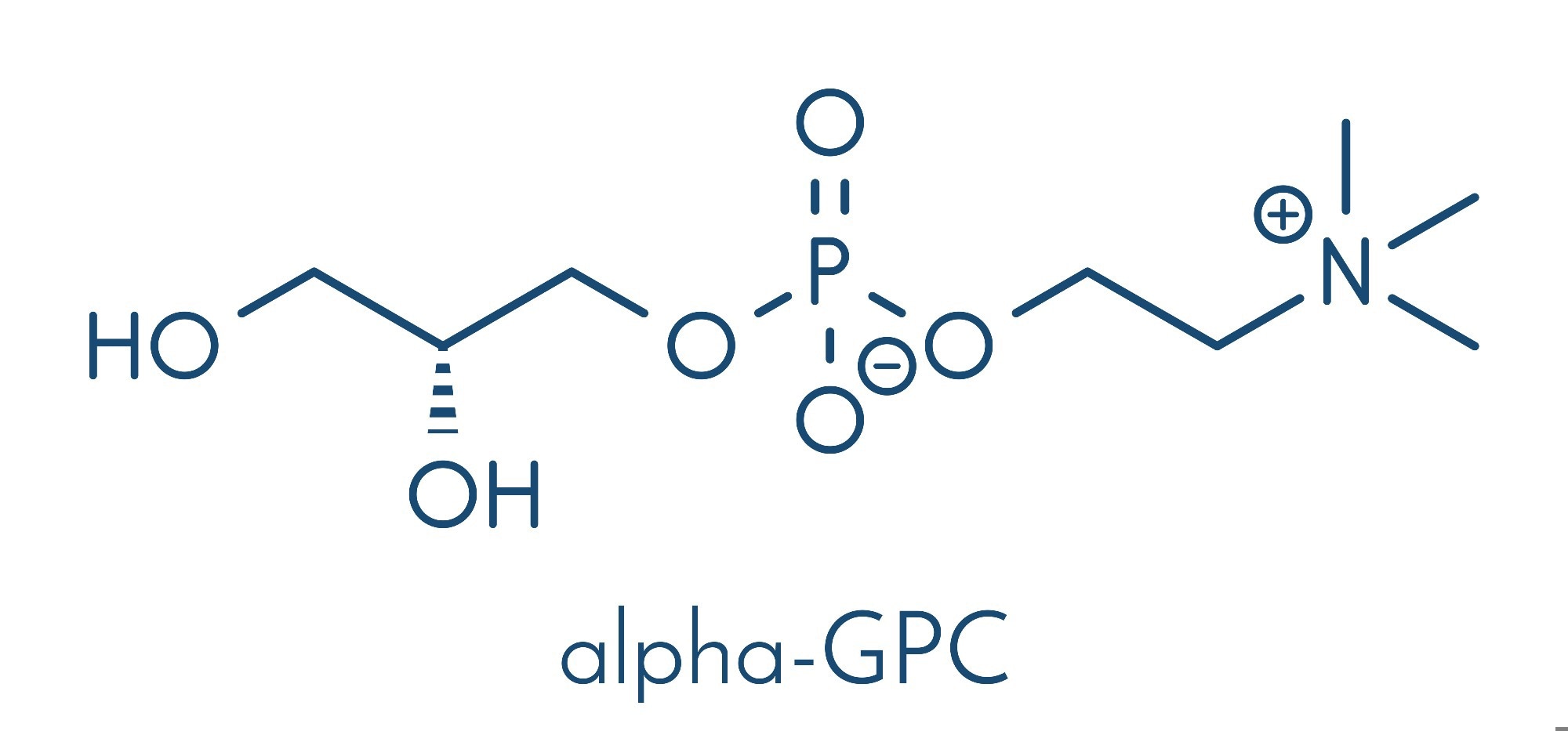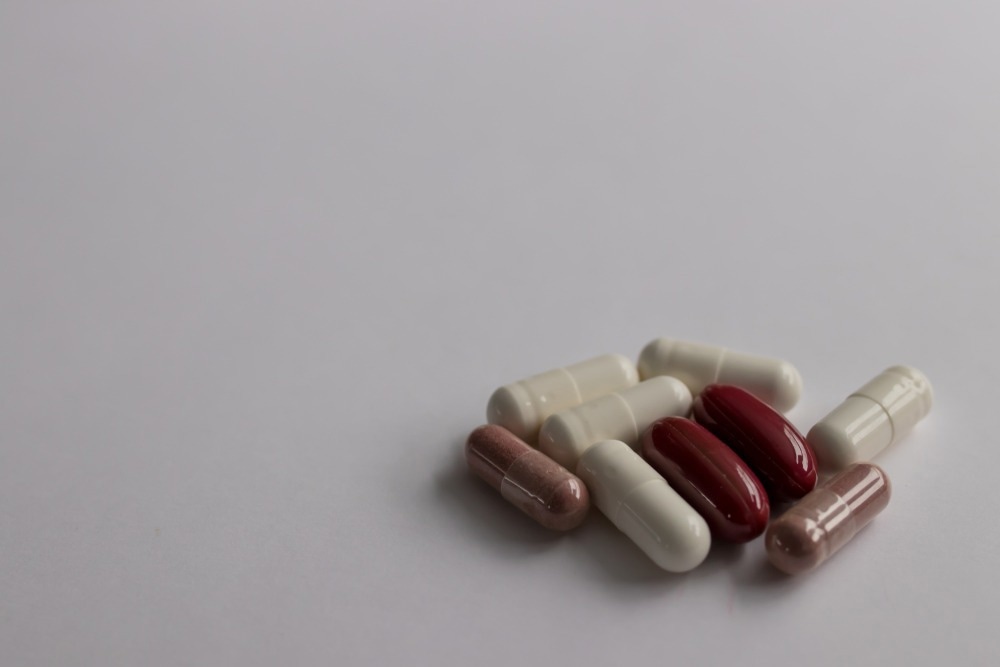What is alpha-GPC, and where is it found?
How alpha-GPC boosts acetylcholine levels
How alpha-GPC supports brain health: Key scientific insights
Why some countries do not approve alpha-GPC as a prescription drug
References
Further reading
What is alpha-GPC, and where is it found?
Alpha-glycerylphosphorylcholine (Alpha-GPC) is a choline-containing phospholipid, which is essentially a lecithin molecule with two fewer fatty acids.2 Although alpha-GPC is a naturally occurring compound found in various food sources, including red meat, wheat, milk, and beans, it is often not present at adequate levels, which triggers the need for effective supplement intake. Alpha-GPC appears to be metabolically active at higher concentrations.
Most alpha-GPC supplements are synthetically produced in the laboratory through enzymatic reactions using egg or soy lecithin as raw material.3 Many times, laboratory-produced alpha-GPC supplements are referred to as a semisynthetic derivative of lecithin.
How alpha-GPC boosts acetylcholine levels
After alpha-GPC ingestion, it is metabolically transformed into its active form, choline and glycerophosphate, primarily within the gastrointestinal tract and brain.4 Choline is a precursor of the neurotransmitter acetylcholine, which facilitates communication between neurons. Since alpha-GPC can directly cross the blood-brain barrier (BBB), it ensures an increase in circulating acetylcholine levels within the central nervous system (CNS).
 Structural formula of Alpha-GPC (Alpha-Glycerophosphocholine), a choline-containing compound commonly used as a dietary supplement for cognitive and neurological health. Image Credit: StudioMolekuul/Shutterstock.com
Structural formula of Alpha-GPC (Alpha-Glycerophosphocholine), a choline-containing compound commonly used as a dietary supplement for cognitive and neurological health. Image Credit: StudioMolekuul/Shutterstock.com
Animal model studies have indicated that alpha-GPC improves cognitive functions, such as learning, memory, and attention, by elevating acetylcholine levels in the hippocampus.5
How alpha-GPC supports brain health: Key scientific insights
Animal models of cerebrovascular disease have highlighted a neuroprotective effect of alpha-GPC.1 Preclinical studies have shown that alpha-GPC increases the release of acetylcholine in the brain, which promotes an improvement in cognitive functions, enhances brain transduction mechanisms, and decreases age-dependent structural changes in the rat frontal cortex and hippocampus.6
Several studies have revealed a low cerebrocortical cholinergic input in Alzheimer's disease (AD) and vascular dementia (VaD). Alpha-GPC supplements exhibited a protective role in the brain from injury of vascular origin. This observation was based on microanatomy of hippocampus of α-GPC-treated biospecimens.1
Alpha-GPC possesses an anti-amnesic effect against scopolamine-induced amnesia and is involved with the formation of nerve cell membranes. Alpha-GPC contributes to anabolic processes responsible for membrane phospholipid and glycerol-lipid synthesis, which positively influence membrane fluidity. This evidence supports the central parasympathomimetic activity of alpha-GPC, emphasizing its clinical applications to prevent cognitive decline that occurs in many neurodegenerative diseases.1
Interested in Brain Health? Read More Here
Cognitive improvement in animals suffering from seizures depends on reduced neuronal death, increased neuroblast formation, and BBB disruption. A preclinical study indicated the potential role of alpha-GPC in treating patients with epilepsy due to its ability to reduce neuronal cell death and alleviate BBB disruption.7
Clinical trials evaluating the effects of alpha-GPC treatment in patients with Alzheimer's disease indicated an increase in dopamine levels and dopamine active transporter expression in the frontal cortex and cerebellum. This treatment also enhanced serotonin levels in the frontal cortex and striatum of rat brains. These findings highlight the role of alpha-GPC as a modulator of the serotonergic (5-HT) system and the dopaminergic (DA) neurotransmission.1
A modification in DA neurotransmission has been associated with changes in motivated behavior. Furthermore, 5-HT1A receptor knockout mice demonstrated an increase in anxiety-like behavior. These findings implicate the possibility of alpha-GPC in improving motivation and anxiety in humans.
Experimental models in rats also indicated that choline plays a crucial role in alleviating head traumas by targeting the inflammatory cascade that is triggered after head injury. A preclinical study revealed that 400 mg/kg of choline supplementation significantly attenuated brain oedema and BBB disruption in rats.8 Another study showed that alpha-GPC supplements enable faster recovery of heart rate variability and blood pressure following intense exercise.
Why some countries do not approve alpha-GPC as a prescription drug
Although the US Food and Drug Administration (FDA) considers alpha-GPC as generally recognized as safe (GRAS) at dietary intake levels, many countries do not approve its use as a prescription drug, mostly due to the lack of robust evidence on efficacy and safety.
A recent study assessing the toxic effects of alpha-GPC indicated no occurrence of adverse clinical symptoms in animals treated with choline supplements, with the exception of some animals developing diarrhea and recovering within 24 hours.9
Besides the ASCOMALVA (Association between the Cholinesterase Inhibitor Donepezil and the Cholinergic Precursor Choline Alphoscerate in Alzheimer's Disease) trials, few large-scale clinical trials have been conducted to assess the safety and efficacy of alpha-GPC.

Image Credit: Shane McCoy/Shutterstock.com
The ASCOMALVA trial indicated that a combination of acetylcholinesterase inhibitors donepezil and α-GPC might delay the progression of cognitive and reduced depression symptoms in patients with AD and cerebrovascular injury, compared to donepezil treatment alone.10
Although alpha-GPC is largely considered to be safe due to its structural feature, multiple studies have indicated that a high plasma choline level is associated with an increased risk of cardiovascular disease through trimethylamine-N-oxide (TMAO) produced by gut microbiota from choline. Some studies have highlighted that TMAO increases the likelihood of stroke and cardiovascular disease.11
In line with this observation, a recent animal model study revealed that even though alpha-GPC supplements improved neurological functions, they increased the risk of atherosclerosis in hyperlipidemic rats. In the future, scientists must elucidate the possible mechanism that associates alpha-GPC with increased cardiovascular risks.
References
- Tamura Y, et al. Alpha-Glycerylphosphorylcholine Increases Motivation in Healthy Volunteers: A Single-Blind, Randomized, Placebo-Controlled Human Study. Nutrients. 2021;13(6):2091. doi: 10.3390/nu13062091.
- Javaid S, et al. Dynamics of Choline-Containing Phospholipids in Traumatic Brain Injury and Associated Comorbidities. Int J Mol Sci. 2021;22(21):11313. doi: 10.3390/ijms222111313.
- Kim J, et al. Enzymatic preparation of food-grade l-α-glycerylphosphorylcholine from soy phosphatidylcholine or fractionated soy lecithin. Biotechnol Prog. 2020;36(1):e2910. doi: 10.1002/btpr.2910.
- Kansakar U, et al. Choline supplements: An update. Front Endocrinol (Lausanne). 2023 Mar 7;14:1148166. doi: 10.3389/fendo.2023.1148166.
- Haam J, Yakel JL. Cholinergic modulation of the hippocampal region and memory function. J Neurochem. 2017 Aug;142 Suppl 2(Suppl 2):111-121. doi: 10.1111/jnc.14052. PMID: 28791706; PMCID: PMC5645066.
- Traini E, et al. Choline alphoscerate (alpha-glyceryl-phosphoryl-choline) an old choline- containing phospholipid with a still interesting profile as cognition enhancing agent. Curr Alzheimer Res. 2013;10(10):1070-9. doi: 10.2174/15672050113106660173.
- Lee M, Choi BY, Suh SW. Unexpected Effects of Acetylcholine Precursors on Pilocarpine Seizure- Induced Neuronal Death. Curr Neuropharmacol. 2018;16(1):51-58. doi: 10.2174/1570159X15666170518150053.
- Conti F, et al. Mitigating Traumatic Brain Injury: A Narrative Review of Supplementation and Dietary Protocols. Nutrients. 2024;16(15):2430. doi: 10.3390/nu16152430.
- Tian J, et al. Safety evaluation of alpha-glycerylphosphorylcholine as a novel food. Food Chem Toxicol. 2025;195:115123. doi: 10.1016/j.fct.2024.115123.
- Carotenuto A, et al. Association Between the Cholinesterase Inhibitor Donepezil and the Cholinergic Precursor Choline Alphoscerate in the Treatment of Depression in Patients with Alzheimer's Disease. J Alzheimers Dis Rep. 2022;6(1):235-243. doi: 10.3233/ADR-200269.
- Zhen J, et al. The gut microbial metabolite trimethylamine N-oxide and cardiovascular diseases. Front Endocrinol (Lausanne). 2023;14:1085041. doi: 10.3389/fendo.2023.1085041.
Further Reading
Last Updated: Feb 14, 2025